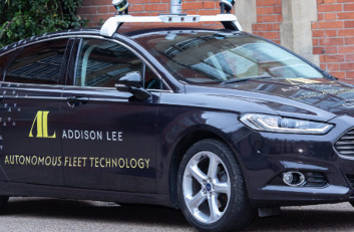Premium car service Addison Lee Group and leading British self-driving vehicle software designer, Oxbotica, have announced a strategic alliance to put self-driving services in London by 2021.
The aspiration matches earlier predictions by the transport secretary Chris Grayling, however experts have cast doubt on the ambitious targets for fully roadworthy vehicles that could operate in traffic.

In a statement the two groups said they planned to 'create detailed, digital maps of more than 250,000 miles of public roads in and around the capital', to record the 'position of every kerb, road sign, landmark and traffic light in preparation for the deployment of autonomous cars'.
Graeme Smith, CEO of Oxbotica, said: 'Our partnership with Addison Lee Group represents another milestone for the commercial deployment of our integrated autonomous vehicle and fleet management software systems in complex urban transport conditions. Together, we are taking a major step in delivering the future of mobility.'
Andy Boland, CEO of Addison Lee Group, said: 'Autonomous technology holds the key to many of the challenges we face in transport. By providing ride-sharing services, we can help address congestion, free space used for parking and improve urban air quality through zero-emission vehicles.'
However cautions have been raised about how realistic the 2021 target really is. Dr Sally Epstein, machine learning expert at Cambridge Consultants, said: 'Consumers should know that we’re nowhere near to having genuinely driverless cars on public roads.'
She argued that among the challenges still to be overcome are:
- 'Mapping data could become out of date as soon as it is collected.
- 'Mapping data alone is not sufficient for the challenge. Maps must be intelligently integrated with other sensor data, in order to keep drivers and other road users safe. The best way to integrate this data remains an area of active research.
- 'There must be adequate transparency in the system for consumers to trust a vehicle’s decision-making. When fully autonomous vehicles do finally arrive, explaining how their decisions are made, particularly following accidents, will be much more important than any statistical proof that they experience fewer accidents that with humans at the wheel.'
The two groups have already been involved in driverless vehicle projects.
Addison Lee Group recently set up the MERGE Greenwich consortium, a government-funded project investigating how autonomous vehicle ride-sharing could be introduced to complement public transport, while Oxbotica is leading the DRIVEN consortium, and has already launched a fleet of vehicles currently running autonomously in public trials in London and Oxford.





